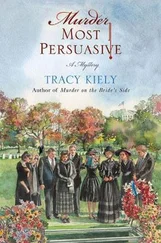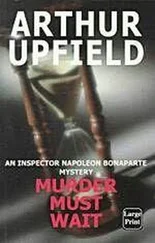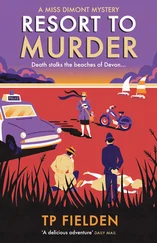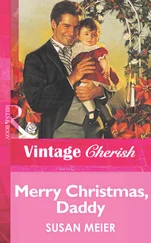Sorley’s voice was shrill and outraged. “But this is hideous. Hideous. I’ll go to the police.”
“Go, then,” said Mr. Kay. “Be our guest. Mother and I won’t stand in your
way.”
“You’d better not try!” warned Sorley defiantly, intending to storm from the room. But when he tried he found his shoelaces were tied together. He fell forward like a dead weight and struck his head, blacking out for a moment. When he regained consciousness he was lying on his stomach with his thumbs lashed together behind his back. Before Sorley’s head cleared he felt something being shoved up the back of his pant legs, over his buttocks, and up under his belt. When they emerged out beyond the back of his shirt collar he saw they were the bamboo poles that had been leaning in the corner.
Before Sorley could try to struggle free, a little pirate appeared close to his face, a grizzled thing with a hook for an arm. little curly-toed shoes and a bandanna pulled down over the pointed tops of its ears. With a cruel smile it placed the point of its cutlass a menacing fraction of an inch from Sorley’s left eyeball and in language no less vile because of the tiny voice that uttered it, the creature warned him not to move.
Mrs. Kay was smiling down at him. “Now don’t trouble yourself over your car, Mr. Sorley. I’ll drive into the city later tonight and park it where the car strippers can’t miss it. Father’ll pick me up in the sleigh on his way back.”
Mr. Kay had been stamping his boots to get them on properly. Now he said, “Give us a kiss, Mother. I’m on my way.” Then the toes of the boots hove into view on the edge of Sorley’s vision. “Good-bye, Mr. Sorley,” said his host. “Thanks for coming. Consider yourself grist for the mills of Christmas.”
As soon as Mr. Kay left the room, Sorley heard little feet scramble around him and more little pirates rushed to man the ends of the bamboo poles in front of him. At a tiny command the crew put the cutlasses in their teeth and, holding their arms over their heads, hoisted Sorley up off the floor. He hung there helplessly, suspended front and back.
The little pirates lugged Sorley out into the hall and headed down the carpet toward the front door. He didn’t know where they were taking him. But their progress was funereally slow, and, swaying there, Sorley conceived a frantic plan of escape. He knew his captors were tiring under their load. If they had to set him down to rest, he would dig in with his toes and. somehow, work his way to his knees. At least there he’d stand a chance.
Sorley heard sleigh bells. He raised his chin. Through the pane of beveled glass in the front door he saw the sleigh on the lawn rise steeply into the night, Christmas tree lights and all, and he heard Mr. Kay’s booming “Yo-ho-ho-ho.”
Suddenly Sorley’s caravan stopped. He got ready, waiting for them to put him down. But they were only adjusting their grips. The little pirates turned him sideways and Sorley saw the open door and the top of the cellar steps and smelled the darkness as musty as a tomb. Then he felt the beginning of their big heave-ho. It was too damn late to escape now. Grist for the mills of Christmas? Hell, he was meat for the stew pots of elfdom.
AS DARK AS CHRISTMAS GETS – Lawrence Block

It was 9:45 in the morning when I got to the little bookshop on West Fifty-sixth Street. Before I went to work for Leo Haig I probably wouldn’t have bothered to look at my watch, if I was even wearing one in the first place, and the best I’d have been able to say was it was around ten o’clock. But Haig wanted me to be his legs and eyes, and sometimes his ear, nose, and throat, and if he was going to play in Nero Wolfe’s league, that meant I had to turn into Archie Goodwin, for Pete’s sake, noticing everything and getting the details right and reporting conversations verbatim.
Well, forget that last part. My memory’s getting better—Haig’s right about that part—but what follows won’t be word for word, because all I am is a human being. If you want a tape recorder, buy one.
There was a lot of fake snow in the window, and a Santa Claus doll in handcuffs, and some toy guns and knives, and a lot of mysteries with a Christmas theme, including the one by Fredric Brown where the murderer dresses up as a department store Santa. (Someone pulled that a year ago, put on a red suit and a white beard and shot a man at the corner of Broadway and Thirty-seventh, and I told Haig how ingenious I thought it was. He gave me a look, left the room, and came back with a book. I read it—that’s what I do when Haig hands me a book—and found out Brown had had the idea fifty years earlier. Which doesn’t mean that’s where the killer got the idea. The book’s long out of print—the one I read was a paperback, and falling apart, not like the handsome hardcover copy in the window. And how many killers get their ideas out of old books?)
Now if you’re a detective yourself you’ll have figured out two things by now—the bookshop specialized in mysteries, and it was the Christmas season. And if you’d noticed the sign in the window you’d have made one more deduction: i.e., that they were closed.
I went down the half flight of steps and poked the buzzer. When nothing happened I poked it again, and eventually the door was opened by a little man with white hair and a white beard—all he needed was padding and a red suit, and someone to teach him to be jolly. “I’m terribly sorry,” he said, “but I’m afraid we’re closed. It’s Christmas morning, and it’s not even ten o’clock.”
“You called us,” I said, “and it wasn’t even nine o’clock.”
He took a good look at me, and light dawned. “You’re Harrison,” he said. “And I know your first name, but I can’t—”
“Chip,” I supplied.
“Of course. But where’s Haig? I know he thinks he’s Nero Wolfe, but he’s not gone housebound, has he? He’s been here often enough in the past.”
“Haig gets out and about,” I agreed, “but Wolfe went all the way to Montana once, as far as that goes. What Wolfe refused to do was leave the house on business, and Haig’s with him on that one. Besides, he just spawned some unspawnable cichlids from Lake Chad, and you’d think the aquarium was a television set and they were showing Midnight Blue .”
“Fish.” He sounded more reflective than contemptuous. “Well, at least you’re here. That’s something.” He locked the door and led me up a spiral staircase to a room full of books, full as well with the residue of a party. There were empty glasses here and there, hors d’oeuvres trays that held nothing but crumbs, and a cut-glass dish with a sole remaining cashew.
“Christmas,” he said, and shuddered. “I had a houseful of people here last night. All of them eating, all of them drinking, and many of them actually singing.” He made a face. “I didn’t sing,” he said, “but I certainly ate and drank. And eventually they all went home and I went upstairs to bed. I must have, because that’s where I was when I woke up two hours ago.”
“But you don’t remember.”
“Well, no,” he said, “but then, what would there be to remember? The guests leave and you’re alone with vague feelings of sadness.” His gaze turned inward. “If she’d stayed.” he said. “I’d have remembered.”
“She?”
“Never mind. I awoke this morning, alone in my own bed. I swallowed some aspirin and came downstairs. I went into the library.”
“You mean this room?”
“This is the salesroom. These books are for sale.”
“Well, I figured. I mean, this is a bookshop.”
Читать дальше













